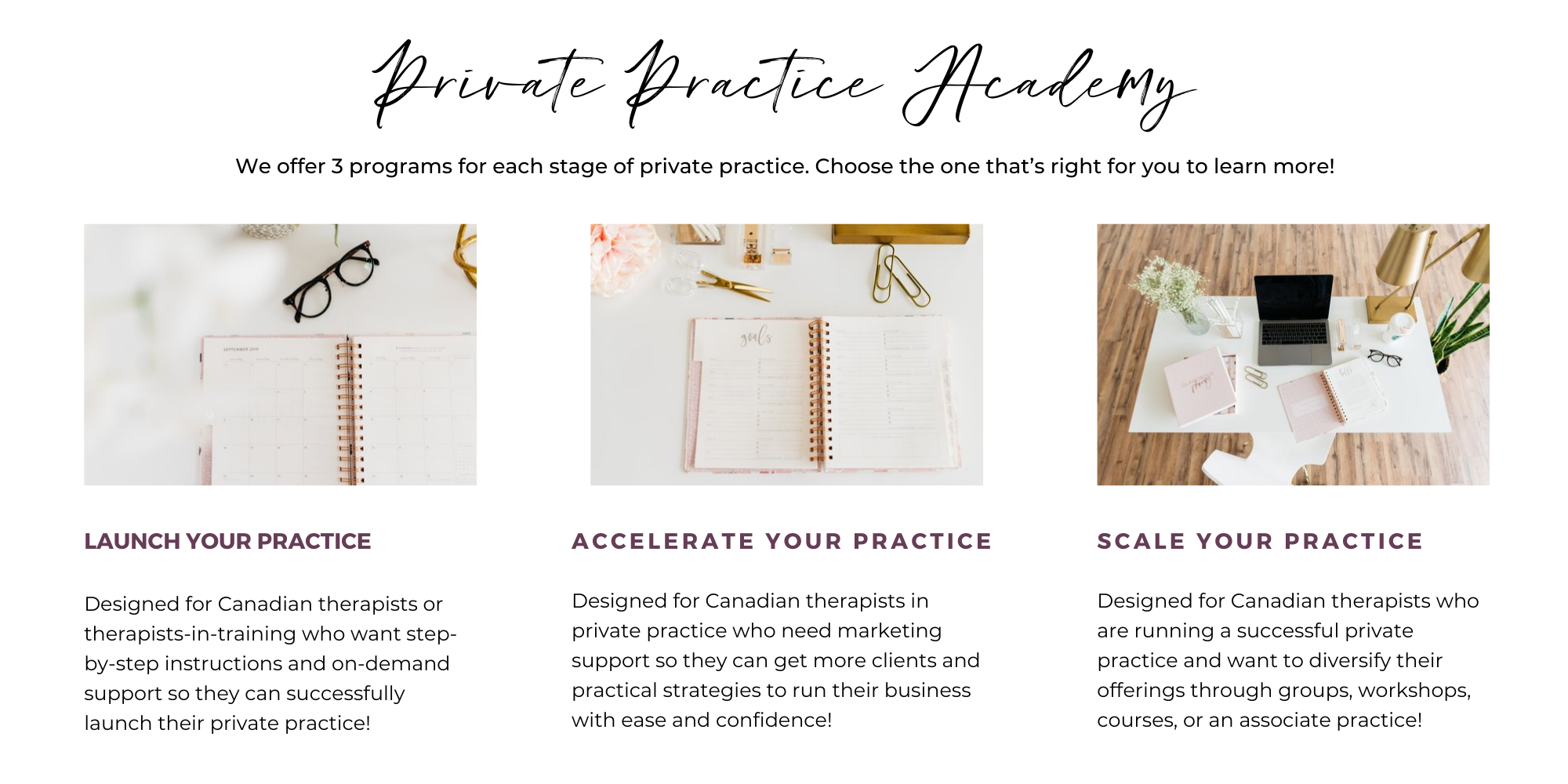3 Ways to Optimize Your Private Practice Website
From reading the reviews on the new local restaurant, searching for a trusty-worthy mechanic and even connecting with the right therapist, now, more than ever, your ideal client is using the internet to find and research businesses. Many of us use the search feature on Instagram or Facebook as well as using search engines (Google and Pinterest) when we want to learn more about a business so your ideal client is likely using search engines to find you as well!
Optimizing your website doesn’t have to be challenging, and while there are tons of resources available to assist you with your SEO (search engine optimization) strategy, we wanted to share a few tips that are easy to implement, and give you results!
Research Your Keywords
The most important step to take when optimizing your private practice website is to ensure that you spend time researching your keywords. These are the words and short phrases that your ideal customer is typing into a search engine such as Google to find what they are looking for.
Start by using the Google Keyword Planner to research keywords for your location and also your industry or therapeutic specialization. This Google resource will generate a list of search terms and will also indicate how often they are searched for. The best performing keywords are those that have a high number of searches but a lower number of competitors (i.e. other businesses who have paid ads using those keywords).
For example, searching ‘Toronto therapist’ in the Google Keyword Planner generated several other keywords that you could incorporate into your website content including your About page and even your blog content. Some of the suggested terms are: ‘marriage counselling Toronto, ‘couples counselling Toronto, ‘cbt therapy Toronto, ‘best therapists Toronto, ‘online therapy Toronto, ‘sliding scale therapy Toronto and more!
Using these well-researched search terms in your website content will increase your chances of landing on the first few pages of a Google search (which will lead to more site traffic and potentially more clients)!
Optimize All Aspects of Your Website
You can incorporate your SEO strategy, and keyword terms, into many aspects of your website. Schedule some time to audit your website to identify areas that can be improved by using keywords. This could include the page titles. For example, rather than the title of your About page simply being ‘About’ try incorporating your business name as well. If your business was called Toronto Marriage Counselling Clinic, the page title would be ‘Toronto Marriage Counselling Clinic - About’.
You can also optimize the file names for any images that you include on your website. Google combs through these file names when completing a search so rather than your photo file name being something generic such as ‘Jane Doe - Headshot - June 2020’, try ‘Jane Doe - Toronto Marriage Counselling Clinic - Headshot 1’.
Finally, take a look at the URLs for your website pages and your blog posts, these should include keywords whenever possible. Take a look at the URL for this post - you will see that we included the keywords ‘private practice’ directly in the URL. URLs are also scanned by Google when searching so this increases our opportunity to perform better in search results.
Create Content That Reflects The Search Patterns of Your Ideal Client
A great way to continue to improve your SEO ranking is to create content that reflects the search patterns of your ideal client. In your keyword research, you may find that the terms generated give insight into the questions your ideal client may have. For example, individuals searching for a therapist may also search for ‘what to expect at my first therapy appointment’. This would be a GREAT blog post to help not only with your SEO rankings but also help potential clients in their search for the right therapist.
It’s also a great idea to use Google or Pinterest’s search feature to see what types of things users are looking for in relation to your keyword. For example, when ‘therapy’ is entered into the search bar on Pinterest, the suggested search terms are ‘therapy quotes’, ‘therapy tools’, and ‘therapy journaling’. On Google, the suggested search terms for ‘what is therapy’ are ‘what is therapy like’, ‘what is therapy good for’, ‘what is therapy supposed to do’.
By using these insights, you can create a content plan that not only incorporates your keywords (to increase your search rankings) but also answers the questions that your audience may have which ultimately builds your authority as a therapist and build rapport with potential clients.
Are you looking for assistance with marketing your private practice? Check out the BYPP programs designed to guide you through every phase of your private practice journey.

